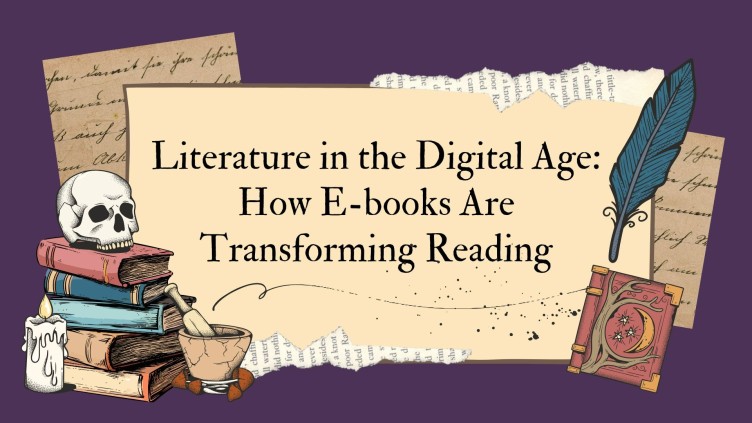In today’s fast-paced digital era, where smartphones and tablets are ubiquitous, the way we read and consume literature has undergone a remarkable transformation. E-books, in particular, have revolutionized the reading experience, offering convenience, accessibility, and a plethora of features that traditional books simply cannot match. In this article, we delve deep into the impact of e-books on reading habits, exploring how they have reshaped the literary landscape and what the future holds for literature in the digital age.
The Rise of E-books: A Digital Revolution
Gone are the days when reading meant flipping through the pages of a physical book. With the advent of e-books, readers now have the world of literature at their fingertips. Whether you’re commuting to work, lounging at home, or traveling across the globe, all you need is a device and an internet connection to access thousands of books instantly. This unprecedented accessibility has democratized reading, making literary classics, bestsellers, and niche publications equally available to readers worldwide.
Convenience Redefined
Imagine carrying an entire library in your pocket. E-books have made it possible. No more bulky stacks of books weighing down your bag—now, you can carry as many books as you want on a single device. This convenience is a game-changer for avid readers and casual bookworms alike. Moreover, e-books allow you to adjust font sizes, switch between day and night reading modes, and even highlight passages for future reference—all at the touch of a button.
Interactive and Engaging Features
One of the most exciting aspects of e-books is their interactive capabilities. Unlike traditional books, e-books can include multimedia elements such as videos, audio clips, and hyperlinks, enriching the reading experience and appealing to a multimedia-savvy generation. For instance, a history e-book could feature interactive maps and timelines, while a cookbook might include instructional videos demonstrating cooking techniques. These features not only enhance comprehension but also cater to diverse learning styles, making e-books a powerful educational tool.
Environmental Impact
In addition to their practical advantages, e-books also offer environmental benefits. By reducing the demand for paper and ink, e-books help conserve natural resources and minimize carbon emissions associated with printing and transportation. For eco-conscious readers, opting for e-books is a sustainable choice that aligns with efforts to reduce our ecological footprint.
Challenges and Criticisms
Despite their many advantages, e-books are not without their challenges. Some readers lament the loss of tactile sensation and the distinct smell of physical books. Others express concerns about digital distractions and screen fatigue, which can affect reading comprehension and concentration. Furthermore, the proliferation of e-books has raised issues surrounding digital rights management (DRM) and ownership of digital content, prompting debates about access and control in the digital age.
The Future of E-books and Beyond
Looking ahead, the future of e-books appears promising. As technology continues to evolve, we can expect even more innovative features and enhancements that will further enrich the reading experience. Augmented reality (AR) and virtual reality (VR) are poised to revolutionize storytelling, offering immersive narratives that blur the line between fiction and reality. Moreover, advancements in artificial intelligence (AI) could personalize reading recommendations based on individual preferences and reading habits, creating bespoke literary experiences for every reader.
Conclusion
In conclusion, while e-books have undeniably transformed the way we read and interact with literature, their impact extends beyond mere convenience. They have democratized access to knowledge, empowered authors to reach global audiences, and paved the way for new forms of storytelling. As we embrace the digital age of literature, it is crucial to strike a balance between innovation and preservation, ensuring that the timeless magic of storytelling continues to captivate and inspire readers for generations to come.
For more insights on literature, technology, and the digital age, visit Riya’s Blogs. Explore articles that delve into the intersection of literature and technology, offering thought-provoking perspectives on how e-books and other digital innovations are shaping the future of reading.
Remember, whether you prefer curling up with a paperback or diving into an e-book on your tablet, the joy of reading transcends the medium. Embrace the digital revolution, but cherish the timeless essence of storytelling that connects us all.






